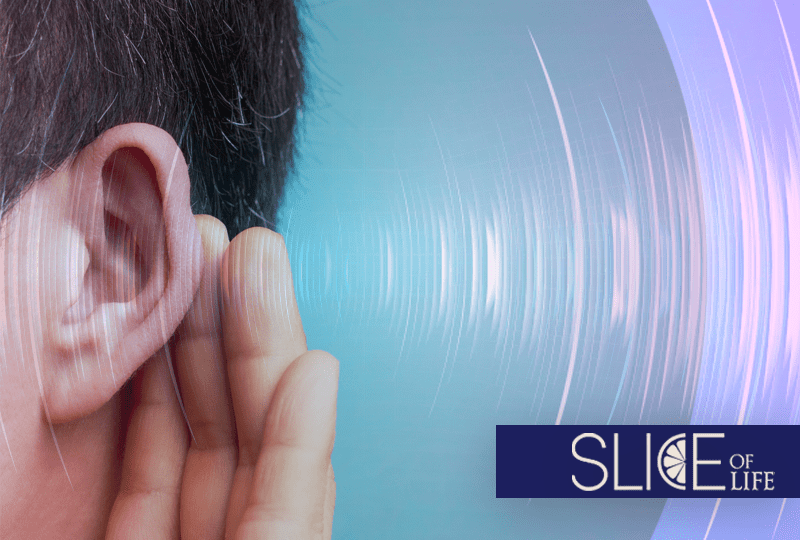Our ears connect us to the world around us – from tiny comforts like hearing our family members moving around the house, to pleasures like listening to live music in a crowd, to moments of emergency when you hear a car coming right before you step into the road. Physicists since the mid-1700s have been able to measure and even visualize the vibrations of sound, but anyone who has seen the dials dance up and down in a recording studio knows that there is a vast difference between the readout of decibels and intensity and the experience of hearing a song or familiar voice. Just like the rest of our body, our ears need some looking after, and there are a few preventive steps we can take throughout our lives to make sure our ears are continually connected to the world loud and clear.
While hearing loss might occur for individual medical reasons, such as infections or growths in the inner ear, we will focus on two main factors within our control: gradual hearing loss from exposure to loud noises and physical damage like a ruptured eardrum. Avoiding physical damage to your inner ear is largely a matter of making sure nothing small (such as a Q-tip) presses in on your eardrum with enough force to cause damage; in fact, there are plenty of other methods for cleaning your ears out that don’t rely on abrasion as a Q-tip does. According to the Mayo Clinic, “Loud blasts of noise, sudden changes in pressure, poking your eardrum with an object and infection can cause your eardrum to rupture and affect your hearing.” The “loud blasts of sudden noise” might be unavoidable to some degree, but it is a good reminder to gun enthusiasts, musicians or even motorcyclists (really any hobby that gets good and loud) to regularly use hearing protection, such as ear plugs or over-the-ear muffs.
This helps us transition to thinking about the loud noises that we expose ourselves to on a day-to-day basis, and in particular, we will be thinking about headphone and earbud usage. The Smithsonian offers that “Modern headphones have their origin in opera houses, military bases and a kitchen table in Utah,” but the inventor of the headphones could never have predicted how, by 2022, headphone usage would be so ubiquitous that it is quite likely that when you walk into a coffee shop and look around the crowd that everyone is in their own little bubble listening to completely different concerts, news and audiobooks. Of course, there is nothing wrong with listening to music through headphones, but everyone should be conscious of their listening habits. First, it is easy over time (even while listening to a few songs) to develop a little bit of a tolerance to the loud sound, and it leads us to turning that volume up to feel the same intensity or engagement as before. Second, and this is much more dangerous, is that because we tend to hear sounds as relative to each other, it is very easy to subject yourself to sounds much louder than you realize if you are trying to block out the world around you. I actually squirm and cringe when I see someone with earbuds in as they mow their lawn. Earbuds in particular rely on very small speakers that produce far more high-pitched sound than low bassy tones. As a result, you have to turn those way, way up to compete with the sound of a lawn mower, or even in situations like inside an airplane where the ambient noises around you are higher than you realize. Many phones and music players are equipped with warnings that tell you if you are listening at levels that might be harmful to your ears, but a little bit of intentional caution and actually “listening to” your ears, as in paying attention to how they feel in addition to what they are picking up, can go a long way.
At Life U, we want you to take care of your hearing and maintain that connection with everyone and everything around you. When you cheer along with a crowd at a rugby game; when you learn and grow among your peers; when you hear that shifting sounds outside as the seasons change‒all of these represent a deep connection to the environment and community around you.


Social Media